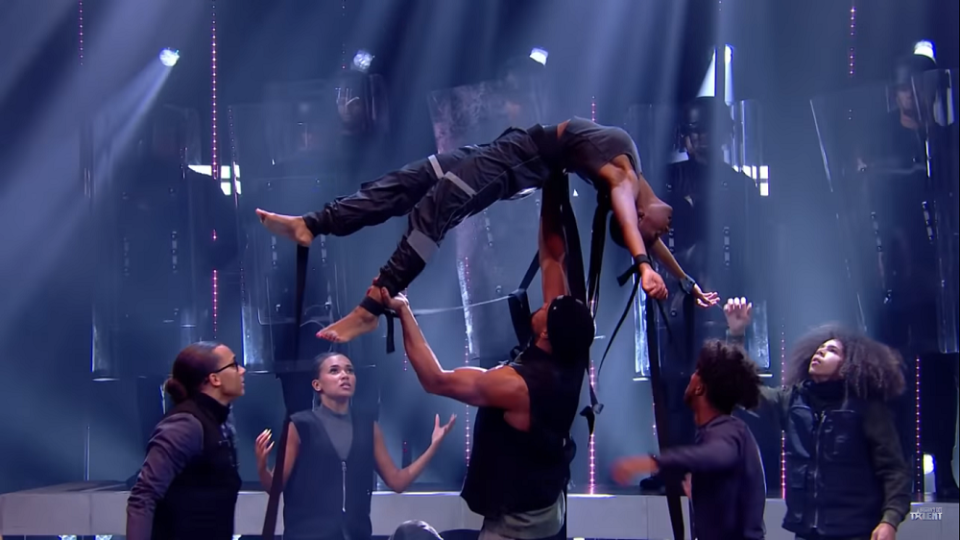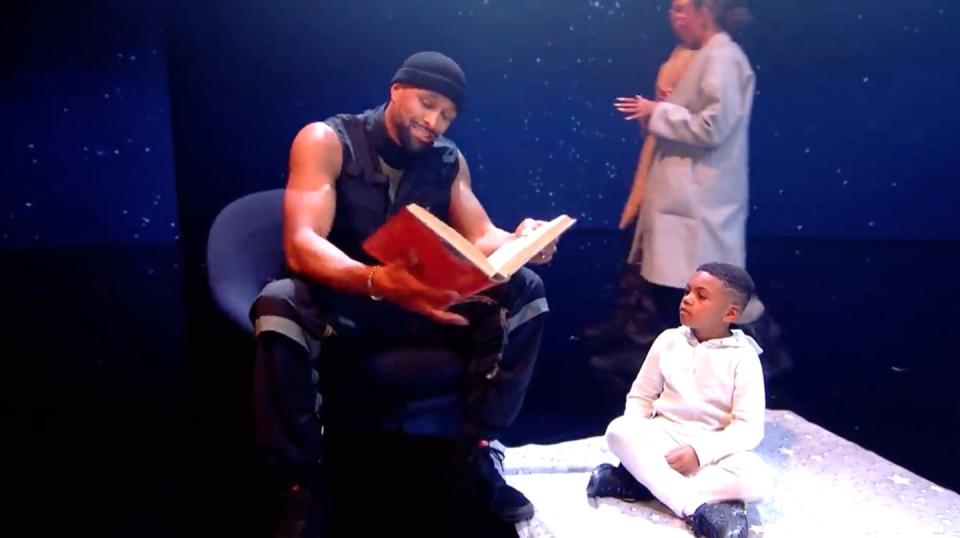Ofcom complaints about Britain's Got Talent's Diversity performance don't tell the whole story
MUST SEE: Diversity’s emotional ‘Black Lives Matter’ performance
MUST SEE: Diversity’s emotional ‘Black Lives Matter’ performance
Even if you didn't tune into Britain's Got Talent this weekend, there's little doubt that by now you will have heard about Diversity's dance performance.
The former winners of the ITV talent show returned to the BGT stage during this year's semi-finals to perform a Black Lives Matter-inspired routine that was billed by the talent show as "a performance that will be talked about for years to come."
They were right. It made an impact and certainly sparked conversation – but sadly, not all of it good.
Fronted by Ashley Banjo, who is also currently a judge on the BGT panel, the dance reflected on some of the world's biggest talking points of 2020 so far, including the COVID-19 pandemic and the re-focus on racism and systemic injustices.
One particularly poignant moment in the routine highlighted the killing of George Floyd, and commented on police brutality and institutional racism.

Ofcom initially confirmed that it received 1,121 complaints in relation to the show, and the number has now risen to 2,966. This has informed much of the media coverage around Diversity's performance, despite the fact that it does not paint an accurate or full picture of the reception it received.
First, while it is fair to say that most of these complaints were in relation to Diversity's time on stage, Ofcom confirmed to Digital Spy that not all of them were.
The specific reasons for these complaints also remain unclear. Whether it was one particular line or reference, for example, or the very fact that Diversity were even performing at all.
The existence of such complaints feeds into a wider issue , and it's one that we've seen many times over.
Just last week, Argos had to issue a statement to defend its television advert against displeased viewers threatening Ofcom action – and this was based simply on the fact that it depicted an all-Black family, along with a reference to a possible LGBTQ+ relationship.
In March, Dave's performance at the Brit Awards, which touched on issues of systemic racism, received just over 300 complaints based on unfounded accusations that it was "racist against white people" (as a side note: the balance of power does not allow for oppression of white people).

Let's also not forget that when Strictly Come Dancing finally acknowledged a demographic of its audience by including a same-sex dance routine – after 15 years on air – there were over 100 complaints to Ofcom.
There's a pattern building here. To put it simply, there is clearly a faction of the viewing public that will take issue with the media whenever they do not see themselves reflected back, or do not have their own worldview affirmed.

And let's put this into perspective for a moment. As disappointing as the official complaints might be, they do only represent a minority of the viewers' responses. Britain's Got Talent pulls in an average audience of almost 10 million, and the 2020 launch show in April averaged 8.6 million viewers for ITV.
When you take this into account, the voices that came out against Diversity's performance – and felt strongly enough to register an official complaint with the TV regulator – seem a whole lot quieter. In fact, even if you assume that the launch audience halved before this week's episode, the complainers make up 0.06% of the total viewership.
It's a shame, then, that the complaints figure has been the overwhelming takeaway for the majority of media sites, many of which might not have run the story without the controversy angle. The headlines chosen for coverage are always subjective, and let's not forget that the media industry is overwhelmingly white, with only 0.2% of journalists being Black (according to the Sutton Trust, via Guardian).
A post shared by Ashley Banjo (@ashleybanjogram) on Sep 7, 2020 at 9:10am PDT
What's more, in a world where algorithms and clicks drive much of the decision-making, outrage and provocation sell. This environment fosters extreme and emotive stances, and probably accounts for publications opting to focus on the negative aspect of the story rather than any positive ones.
If you care to look, much of Britain's Got Talent's audience appeared to praise the performance this weekend, with viewers branding it "sensational", "meaningful" and "powerful." Elevating and centring the criticisms is a choice, and one that gives more of a legitimate platform to that way of thinking.
Diversity's own Ashley Banjo reported receiving "thousands of messages of love and support" and thanked fans. While he acknowledged that there were also "thousands of messages of hate and ignorance" (most likely on Twitter), Ashley also turned that into a positive by stating: "You highlight exactly what needs to change."
It seems that those so wildly against Black Lives Matter being woven into primetime Saturday night television are actually fulfilling their own prophecy.
They have, in fact, further underlined how much work there is to be done in the fight for equality, representation and the acceptance of others' lived experiences of racism.
Let's hope, as Ashley Banjo said himself on Instagram, that "one day we will look back and realise it was the start of real change..."
Britain's Got Talent airs on ITV.
Digital Spy has launched its first-ever digital magazine with exclusive features, interviews, and videos. Access this edition with a 1-month free trial, only on Apple News+.
Interested in Digital Spy's weekly newsletter? Sign up to get it sent straight to your inbox.
You Might Also Like

 Yahoo News
Yahoo News 
